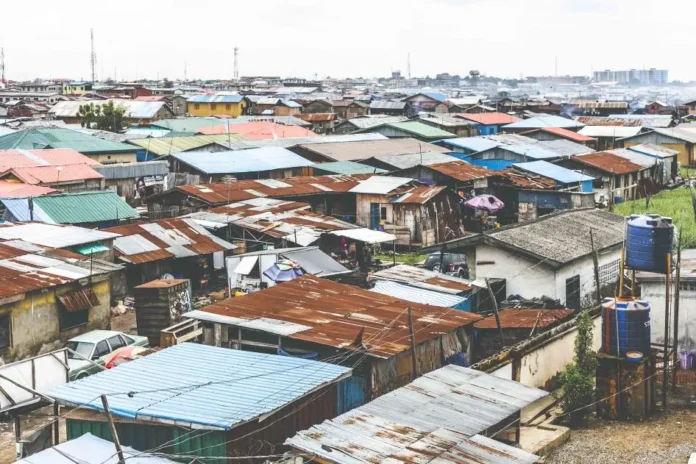By Vincent Nwanma
A TikTok message currently circulating aptly captures the poverty question in Nigeria: Why are we so poor despite having plenty? The experience of most Nigerians is that of a man at the riverbank seeing the water flowing past him, but he cannot drink of it to quench his thirst. This has lasted for days, years, and decades. Yet the river continues to flow past him.
The subject matter of the message is the latest Federal Accounts Allocation Committee amount shared by the three tiers of government, the federal, 36 states, and 774 local governments in the country. According to the story, the amount shared last month, June, was N1.818 trillion, “one of the biggest monthly revenue distributions in recent memory,” the narrator observed.
The federal government, as usual, got the lion’s share of N645 billion; the 36 states N607 billion, while the local government areas received 444 billion. In addition, the oil-producing states received an extra N120 billion as derivation, to compensate them for bearing the brunt of oil exploration with all the attendant environmental degradation and health challenges.
The June figures are not the story. The story is rather that this is just a dot amid many allocations that have been made over the last several years. Getting the full and accurate figures could be a bit challenging, but Nigerians know that these funds flow theoretically on their behalf every month. The amounts vary over time, but for most of the time, as a variable, the FAAC distribution has always had an upward tendency. In June 2020, the amount distributed to the governments was N651.184 billion, about the amount that the federal government alone received in June this year. For November last year, the amount the three tiers of government shared was N1.727 trillion. So, these figures have been rising over time.
Twelve times a year, the representatives of the federal and state governments gather at the beautiful office of FAAC in Abuja, the nation’s political capital, where these allocations are made according to agreed-upon sharing formulas. These are political decisions that impact the lives of millions of Nigerians.
The first question to ask about these figures is usually; Where did they come from? Which economic activities generated the revenues? Of course, the records provide the answers. For the June 2025 allocations, the amounts come from statutory revenue (N.018 trillion); N631.5 billion (from VAT), N29.16 billion from Electronic Money Transfer Levy, N38.849b came from Exchange Difference Revenue (EDR), while about N100 million came from non-mineral revenue. The picture is similar for the November 2024 figures, which came in thus: N455.354 billion from statutory revenue; N585.700 billion from VAT, N15.046 billion from EMTL, while N671.392 billion came from ERD. By way of explanation, the statutory revenues refer to taxes, oil royalties, and company income taxes.
Just like the recent rebasing of our GDP, which introduced new categories of economic activities into our economy, the sources of revenue being distributed to the three tiers of government are increasing. This explains the introduction of such sources as “Electronic Money Transfer Levy”. Most Nigerians today are contributing to this source of income to the government. Anyone who owns a mobile phone and engages in electronic money transfer is automatically a contributor because the deduction comes immediately. We also now have the source called Exchange Difference Revenue, which arises generally when there’s a change in the exchange rate between the time a transaction is initiated and when it is settled.
The rising revenue profiles of the governments thus raise the question: why are we still so poor? And why are there more projections of many more millions of Nigerians falling into absolute poverty in the coming years? Ours is a nation of paradoxes, a summary of the existence of inexplicable contradictions in our environment. One such contradiction is the fact that our revenue is rising, but most of the citizens are getting poorer. The FAAC allocations are bulging each month, but the impact on the people is rather diminishing.
By the political-economic structure of our country, the governments at the three levels of authority in Nigeria serve as the clearing houses for the distribution and utilisation of these resources. They are the gatekeepers, as we say in the newsroom. Theirs is a critical role. It is what they allow to get out, in what direction, and for what purpose, that happens.
This explains the amount of pressure that exists at the governance levels. At each point, there is a mesh of conflicting interests pulling in different directions. The economy wants to move forward, but something is pulling it backward. That in part explains the prediction by the World Bank in April this year that Nigeria’s poverty would rise by 3.6 percentage points by 2027. The continued existence of extreme poverty in Nigeria speaks to defective gatekeeping and allocation of the nation’s resources.
If most of those who are entitled to the wealth of the nation are kept away from it, then something is wrong with the management. When are we going to see a projection of poverty declining in Nigeria?

